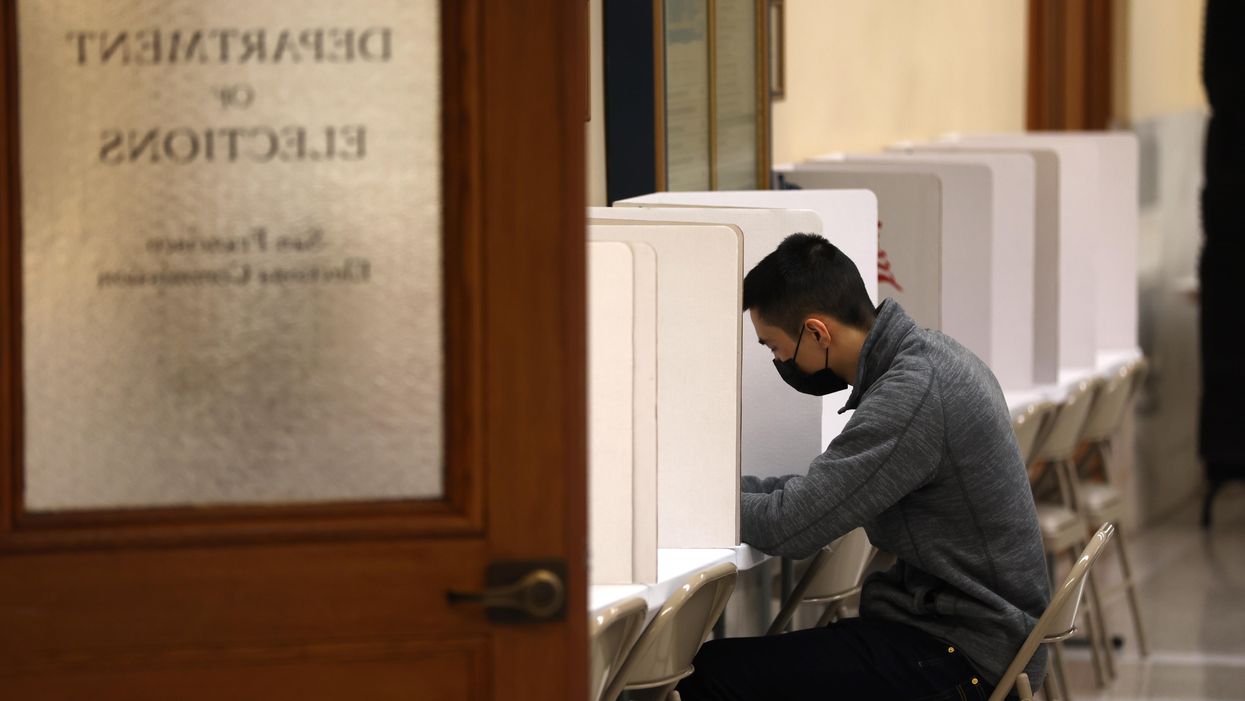Altmire, a Democrat, represented Pennsylvania in the House of Representatives from 2007 to 2013. He studies primary election systems and is on the advisory board of Open Primaries.
In what has become an annual ritual, the Los Angeles Times recently attacked California’s nonpartisan primary election process.
The focus of the piece was the state Senate’s 4th district. According to the Times, the Northern California district “belongs” to the Republican Party. The area has previously elected many Republicans, so the result must be preordained.
On June 6, eight candidates ran in the 4th district primary. Six were Republicans and two were Democrats. When all the votes were counted, the two most popular candidates – those who got the most votes – were Tim Robertson and Marie Alvarado-Gil, both Democrats. They now advance to face one another in the general election.
This was all the Times needed to once again criticize the nonpartisan system, now in place for a decade. The criticisms are frustratingly familiar: It allows unfair results like in the 4th district. It has not produced moderation. Independents don’t care enough to vote in primaries. The reform has not produced meaningful change.
These criticisms are dead wrong.
The premise that Republican voters in the 4th will skip the general election because there is not a Republican on the ballot is incorrect. Research by Charles Munger showed that so called “orphaned” voters participate in high numbers. Andy Sinclair at Claremont McKenna found that 60 percent of Californians like the system, and that voter approval of the legislature has gone from 10 percent to 50 percent in a decade.
The 4th district race was what democracy should look like! The six GOP candidates were unable to inspire broad support and ended up balkanizing the conservative vote. They didn’t adapt their message and they lost because they couldn’t inspire the voters. So now, two Democrats will compete to represent a conservative-leaning district. To remain in office, whichever Democrat wins will be required to legislate in a way that appeals to voters of the conservative district, breaking the norms of traditional party politics. In today’s polarized times, we need more of that, not less.
Sinclair points out that defining “moderation” is difficult. It’s a tricky term that means different things to different people. Some have argued that Sacramento has become even more bipartisan, while other research shows modest effects. We know this much to be true: While California is still dominated by the Democrats, the parties no longer control the electoral process, from primaries to gerrymandering. Voters have freedom to choose from all the candidates. In many races, candidates whose rhetoric appeals only to their extreme base lose to candidates with a more inclusive message.
We can debate whether this leads to more moderation, but it undeniably leads to more pragmatism and accountability. There’s certainly a better reception in Sacramento for the Chamber of Commerce’s proposals for business growth now than under the previous partisan primary system. California Forward spoke to dozens of legislators and found “the majority of respondents felt that the top two primary has empowered more independent-minded, moderate, mainstream, and centrist candidates. Similarly, a majority felt that the top two primary shifts power away from the extremes — both special interests and party leadership, and benefits include increased competition and representation of a broader range of views in campaigns.”
In 46 states, candidates for Congress and state legislature are forced to compete in primary elections that are controlled by the parties, not the voters. Winners tend to be those candidates who are more responsive to small partisan interest groups than to the broader electorate. In states with party-controlled primaries, 40 percent of state legislators run unopposed in November. California has short-circuited this and put power in the hands of the voters. Has this led to a political utopia? Of course not. The parties still exercise control, and there are still powerful special-interest groups in California that have choked off innovation on every issue, from homelessness to taxes to energy to land management. Yes, “politics as usual” is still alive and well in California.
But in most states, voters have no tools to combat this. Now they do in California. Politicians no longer draw the lines of their own districts, and voters no longer vote in party-controlled primary elections. The voters have a system they like, and they more often than not use it to make an impact, even though it is still messy and imperfect.
Don’t let the critics fool you. No district belongs to a political party. The primaries don’t belong to a political party. They should belong to the people, and California’s system helps keep it that way.



















Marco Rubio is the only adult left in the room